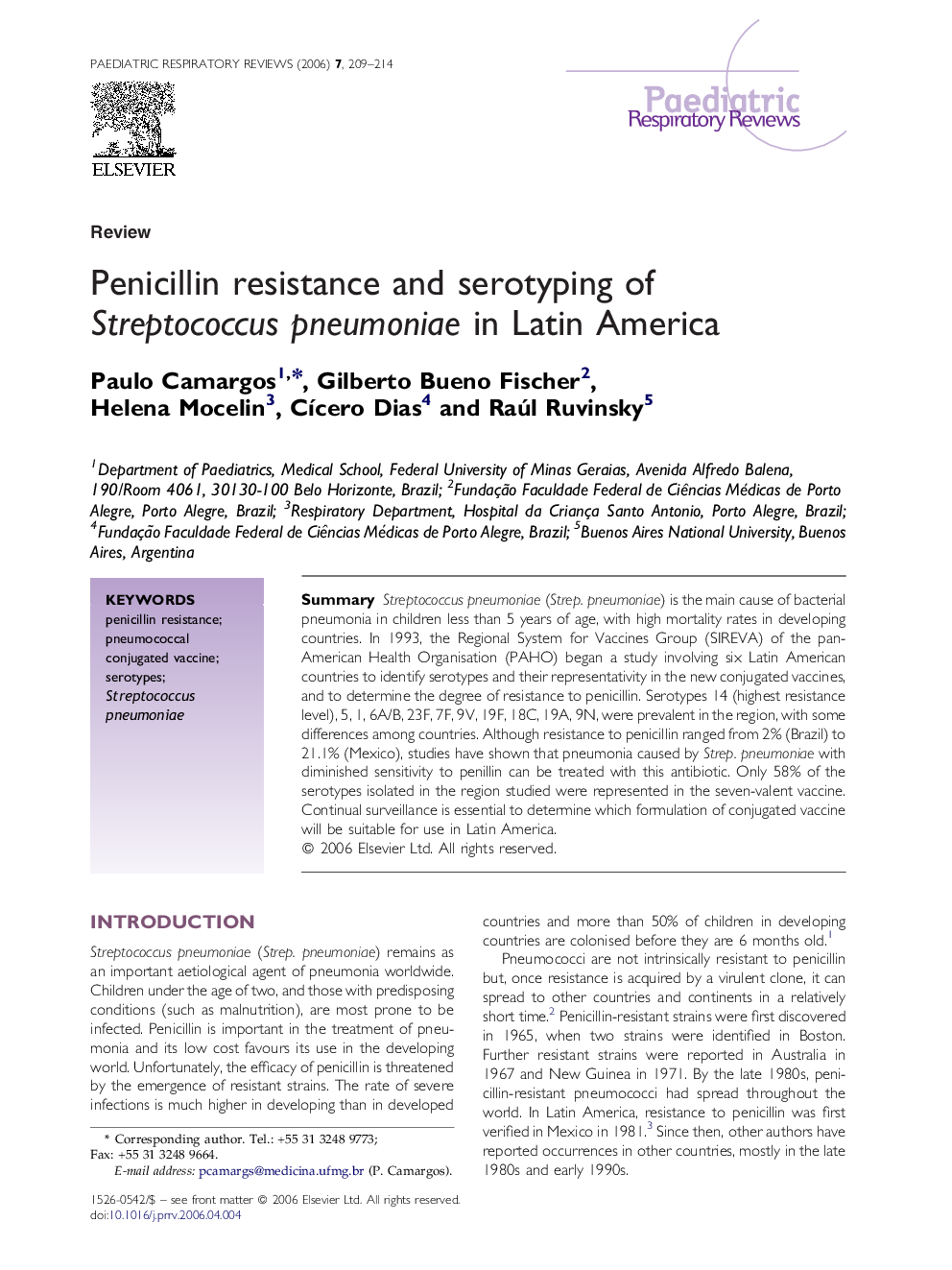| Article ID | Journal | Published Year | Pages | File Type |
|---|---|---|---|---|
| 4171708 | Paediatric Respiratory Reviews | 2006 | 6 Pages |
SummaryStreptococcus pneumoniae (Strep. pneumoniae) is the main cause of bacterial pneumonia in children less than 5 years of age, with high mortality rates in developing countries. In 1993, the Regional System for Vaccines Group (SIREVA) of the pan-American Health Organisation (PAHO) began a study involving six Latin American countries to identify serotypes and their representativity in the new conjugated vaccines, and to determine the degree of resistance to penicillin. Serotypes 14 (highest resistance level), 5, 1, 6A/B, 23F, 7F, 9V, 19F, 18C, 19A, 9N, were prevalent in the region, with some differences among countries. Although resistance to penicillin ranged from 2% (Brazil) to 21.1% (Mexico), studies have shown that pneumonia caused by Strep. pneumoniae with diminished sensitivity to penillin can be treated with this antibiotic. Only 58% of the serotypes isolated in the region studied were represented in the seven-valent vaccine. Continual surveillance is essential to determine which formulation of conjugated vaccine will be suitable for use in Latin America.
